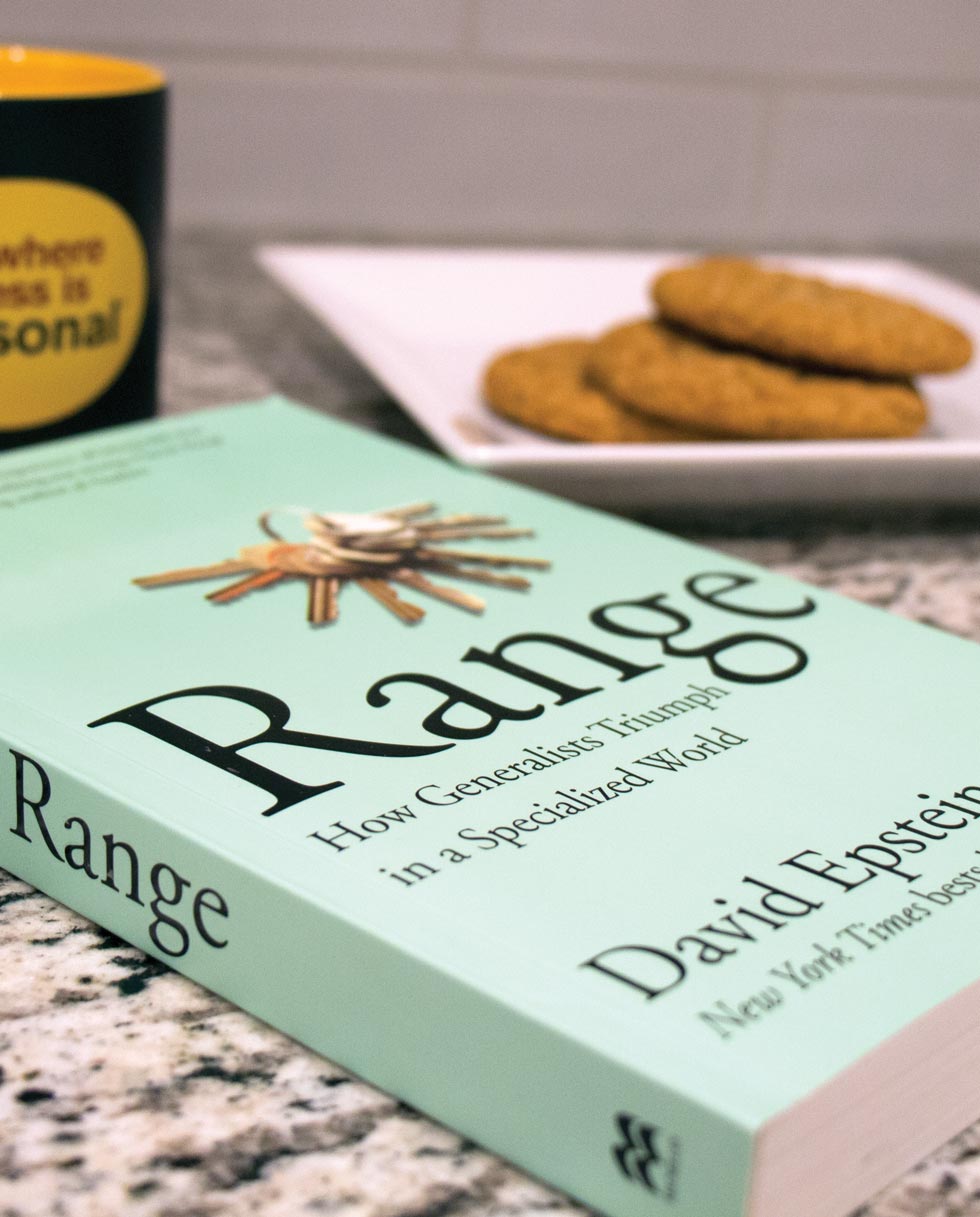ALL THINGS WPC

“Creating a new invention involves looking at something differently than anyone else has. This is done by people with a variety of skill sets,” says Alyssa Schott (BS Management/BA Business Sustainability ’19). “However, specialization is needed after the general new idea is formed. The specialists are needed to fix the bugs and have the knowledge to create a successful product.”
The COVID-19 pandemic illustrates not only the importance of specialized knowledge but also the ability to adapt. “ASU has the state’s first saliva-based testing lab. We received FDA emergency approval and used a network of 3D printers to start doing the nasal swab test,” explains W. P. Carey Dean Amy Hillman. “It is unclear how ASU’s testing lab will turn out because there is still so much uncertainty. One thing is for sure, adaptability has never been more important. These are the skills that are going to come from generalists.”
Examining some of the world’s most successful athletes, artists, musicians, inventors, forecasters, and scientists, the book concludes with the finding that generalists, not specialists, are better conditioned to prosper. This is true in most fields, and especially those that are complex. Hillman endorses this idea, but also believes that generalists and specialists need to work together to create a successful world.
Real estate is one of many industries where collaboration is key. Carter Tappan (BS Finance ’06), a real estate broker and generalist, works with many specialists during a transaction. “As a real estate broker, my job is to interact and accommodate many moving parts,” Tappan says. “In my industry, any one of these participants can bring down a real estate sale. Therefore, I must be a generalist. I must continually educate myself in each of my colleagues’ areas of expertise.”
“Generalists and specialists collaborating on teams is one way to achieve a successful outcome,” suggests Brian Etheridge (BS Economics ’96). “I think a team of specialists from various disciplines collaborating can achieve the same, or often better, results as an individual with range. This is why most corporate boards have people with industry and non-industry experience.”
Executive Director of W. P. Carey Career Management and Employer Engagement Sharon Irwin-Foulon recognizes that continuous learning is key to long-term success after graduation — regardless of the path that students choose to pursue. “Range has a lot in common with our thinking at W. P. Carey. It’s important to realize that nothing is final. Lifelong learning never stops,” says Irwin-Foulon.
Steven Beverly (BS Computer Information Systems ’15, MBA ’17) considers how he never thought about the agile generalist versus specialized expert debate — the W. P. Carey Book Club pushed him to look further. “Many people start out specializing in a certain area, and over the course of their career will shift and learn new things, and expand their range of specialties. Becoming a generalist does not instantly negate or diminish existing specialist knowledge and expertise.”
“Whether it’s a virtual relationship, or joining a community that wants to read and discuss a book, we have ways to connect,” Hillman adds. Alumni who are interested are welcome to join the W. P. Carey Book Club — visit wpcarey.asu.edu/book-club to get started.